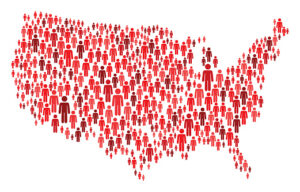In order to gain a better understanding of SARS-CoV-2 seroprevalence, the American Red Cross tested all blood donations from June 15, 2020 to August 23, 2020 for anti-SARS-CoV-2 IgG. Of the 953,926 donations collected, 17,336 (1.82%) were positive for SARS-CoV-2 antibodies. Almost 3% (N=4786) of first-time donors were seropositive compared to 1.58% (N=12,550) of repeat donors. Donors age 18-24 years (3.87%) were more likely to be seropositive compared to those age 55 years or older (1.30%) (P<0.001). Both African American (4.11%) and Hispanic donors (4.35%) were more likely to have antibodies compared to white donors (1.65%) (P<0.001 for both comparisons). In addition, seroprevalence in donations increased from 1.18% in June to 2.58% in August 2020, and seroprevalence increased over time across all regions except the Northeast. Seroprevalence estimates from this population may not reflect the true underlying proportion exposed to SARS-CoV-2 in the United States. Furthermore, American Red Cross donation centers are underrepresented in some areas in the U.S. including New York City and south Florida. Nevertheless, screening blood donors for SARS-CoV-2 antibodies may help monitor trends of the infection.
Reference:

